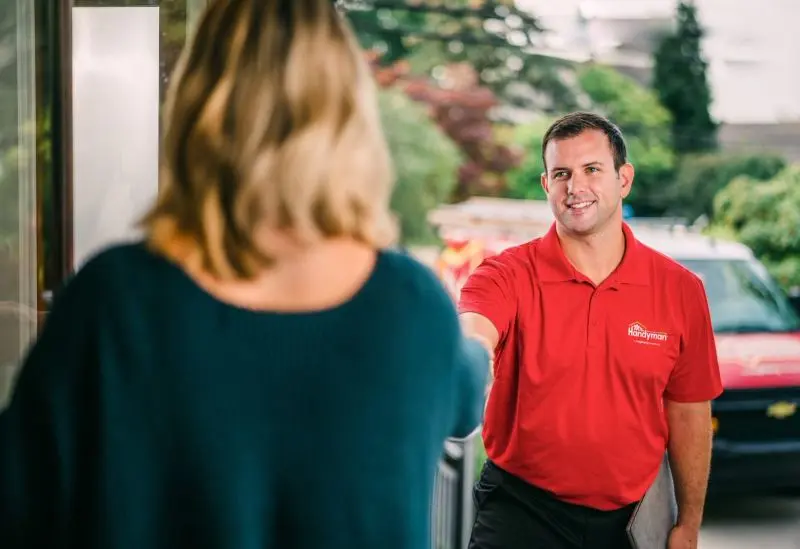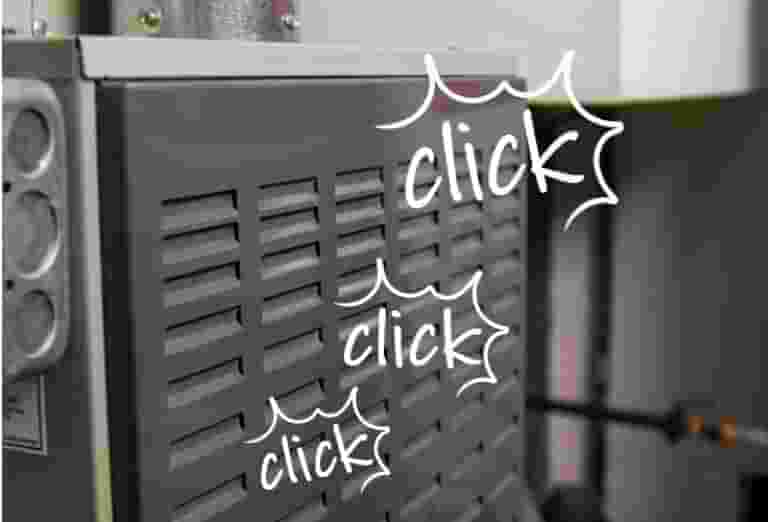- Remove sharp, dangerous objects that are within the baby’s reach.
- Pick up any objects from the floor that could hurt the baby.
- Secure any large furniture—especially pieces that are top-heavy.
- Place covers on all of your electrical outlets.
- Install safety gates in doorways and near stairwells.
- Add doorstops and door holders throughout your home.
- Install double hung windows that can be opened from the top.
- Inspect your home’s smoke detectors and add a fire extinguisher.
- Install childproof locks on cabinets throughout your house.
Instead of spending your time doing this yourself,contact our professionals! We can come to your house and do these tasks for you—making it a safer environment for the entire family. Mr. Handyman can also perform other tasks to get the house baby-ready, such as painting a nursery, and more.
All Mr. Handyman franchises are locally owned and operated and may offer fewer or more services than those listed here. To learn more about the babyproofing installation offered in your area, contact your local Mr. Handyman for details or a customized on-site assessment.
Babyproofing FAQs
Mr. Handyman has been helping homeowners repair, maintain, and enhance their spaces for over 25 years! We are the one-stop solution for everything on your to-do list. This includes answering your questions about home repairs, maintenance, and improvements. Here are answers to some of your most frequently asked questions about babyproofing installation Services.
What is the meaning of babyproofing?
To babyproof your house is to eliminate or minimize potential hazards that could harm a baby as they explore their environment. This involves taking steps like securing furniture, covering electrical outlets, locking cabinets, and using gates to keep babies away from everyday dangers.
The goal is to create a space where they can move around and explore without the risk of injury. It’s also about anticipating what they might reach for or get into as their curiosity grows. Babyproofing helps give you peace of mind, knowing your home is ready for your little one.
When should you start babyproofing?
You’ll want to start babyproofing your home once your little one starts to be mobile. This is usually when they’re around six to nine months old. Of course, it’s never too soon to start the process. You’ll have a few months to make sure everything's ready for when your baby really starts exploring!
What is an example of babyproofing?
One of the most common examples of babyproofing a house is installing baby gates at the top and bottom of stairs to prevent babies from crawling up or falling down. Gates serve as barriers, keeping curious little ones away from dangerous areas. It’s a simple but essential step to protect your children at home.
What babyproofing do I need?
Every home is different. Generally speaking, you’ll want to walk through each room and spot potential ways to babyproof your space. Look for sharp edges on furniture, cover electrical outlets, secure heavy furniture and TVs to the wall, lock cabinets with cleaning supplies or other dangerous items, and install gates at the top and bottom of stairs.
Don’t forget to keep small objects out of reach and ensure any cords (like blinds or appliances) are tucked away. The idea is to think like a curious baby and remove anything they might get into or that could cause harm. Learning how to babyproof your house is often an ongoing process!
How long does a house need to be babyproofed?
You’ll probably need to keep your house until they’re about four or five years old. As they get older and more independent, you can ease up on some of the babyproofing, but things like securing furniture and keeping dangerous items out of reach might be necessary for a while longer. Adjust as they grow and become more curious!
 Click to call
Click to call


 Click to call
Click to call
